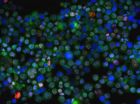(Press-News.org) SAN DIEGO, April 4, 2014 – An examination of the genetic landscape of head and neck cancers indicates that while metastatic and primary tumor cells share similar mutations, recurrent disease is associated with gene alterations that could be exquisitely sensitive to an existing cancer drug. Researchers from the University of Pittsburgh Cancer Institute (UPCI) and Yale University School of Medicine will share their findings during a mini-symposium Sunday at the American Association for Cancer Research Annual Meeting 2014.
About 50 percent of patients diagnosed with head and neck squamous cell cancers already have disease that has spread, or metastasized, to the lymph nodes, explained Jennifer Grandis, M.D., distinguished professor and vice chair of research, Department of Otolaryngology, Pitt School of Medicine, and director of the Head and Neck Program at UPCI, partner with UPMC CancerCenter. About 20 to 30 percent of patients thought to be cured of the disease go on to develop recurrent cancer, which typically doesn't respond to standard treatments.
"We decided to compare the genetic signatures of tumor cells from primary tumors with those from disease that had spread and cancers that were thought cured but then came back in the hopes of getting some clues about how best to guide therapy in these different settings," Dr. Grandis said. "We found that recurrent cancers might have an Achilles' heel we can exploit to kill them."
The team conducted the first whole-exome genetic sequencing study on what Dr. Grandis called its "treasure trove" of frozen patient samples and found similar mutations both in primary tumors and in the lymph nodes to which their cancers had already spread. But there were different mutations in tumors that had recurred after a period of remission that were not found in their original cancers.
"The recurrent tumors carried mutations in a gene area that encodes for DDR2 cell receptors," Dr. Grandis said. "Other studies have shown that DDR2 mutations can confer sensitivity to the cancer drug dasatinib, which could mean that drug has promise in the treatment of recurrent head and neck cancers."
The researchers suggest that further investigation of dasatinib treatment is warranted.
INFORMATION:
About UPCI
As the only NCI-designated comprehensive cancer center in western Pennsylvania, UPCI is a recognized leader in providing innovative cancer prevention, detection, diagnosis, and treatment; bio-medical research; compassionate patient care and support; and community-based outreach services. Investigators at UPCI, a partner with UPMC CancerCenter, are world-renowned for their work in clinical and basic cancer research.
About the University of Pittsburgh School of Medicine
As one of the nation's leading academic centers for biomedical research, the University of Pittsburgh School of Medicine integrates advanced technology with basic science across a broad range of disciplines in a continuous quest to harness the power of new knowledge and improve the human condition. Driven mainly by the School of Medicine and its affiliates, Pitt has ranked among the top 10 recipients of funding from the National Institutes of Health since 1998. In rankings recently released by the National Science Foundation, Pitt ranked fifth among all American universities in total federal science and engineering research and development support.
Likewise, the School of Medicine is equally committed to advancing the quality and strength of its medical and graduate education programs, for which it is recognized as an innovative leader, and to training highly skilled, compassionate clinicians and creative scientists well-equipped to engage in world-class research. The School of Medicine is the academic partner of UPMC, which has collaborated with the University to raise the standard of medical excellence in Pittsburgh and to position health care as a driving force behind the region's economy. For more information about the School of Medicine, see http://www.medschool.pitt.edu.
http://www.upmc.com/media
Contact: Allison Hydzik
Phone: 412-647-9975
Mobile: 412-559-2431
E-mail: HydzikAM@upmc.edu
Contact: Anita Srikameswaran
Phone: 412-578-9193
E-mail: SrikamAV@upmc.edu END
Recurrent head and neck tumors have gene mutations that could be vulnerable to cancer drug
2014-04-04
ELSE PRESS RELEASES FROM THIS DATE:
Common breast cancer subtype may benefit from personalized treatment approach
2014-04-04
SAN DIEGO, April 4, 2014 – The second-most common type of breast cancer is a very different disease than the most common and appears to be a good candidate for a personalized approach to treatment, according to a multidisciplinary team led by scientists at the University of Pittsburgh Cancer Institute (UPCI), a partner with UPMC CancerCenter.
Invasive lobular carcinoma, characterized by a unique growth pattern in breast tissue that fails to form a lump, has distinct genetic markers which indicate drug therapies may provide benefits beyond those typically prescribed for ...
Plant-derived anti-cancer compounds explained at national conference
2014-04-04
SAN DIEGO, April 4, 2014 – Compounds derived from plant-based sources — including garlic, broccoli and medicine plants — confer protective effects against breast cancer, explain researchers at the University of Pittsburgh Cancer Institute (UPCI), partner with the UPMC CancerCenter.
In multiple presentations Sunday at the American Association for Cancer Research (AACR) Annual Meeting 2014, UPCI scientists will update the cancer research community on their National Cancer Institute (NCI)-funded findings, including new discoveries about the mechanisms by which the plant-derived ...
Genetic testing beneficial in melanoma treatment
2014-04-04
SAN DIEGO, April 4, 2014 – Genetic screening of cancer can help doctors customize treatments so that patients with melanoma have the best chance of beating it, according to the results of a clinical trial by researchers at the University of Pittsburgh Cancer Institute (UPCI), a partner with UPMC CancerCenter.
The trial, funded by the National Institutes of Health (NIH), will be presented Monday at the American Association for Cancer Research (AACR) Annual Meeting 2014. It showed that the cancer immune therapy drug ipilimumab appears most likely to prevent recurrence ...
Combining cell replication blocker with common cancer drug kills resistant tumor cells
2014-04-04
SAN DIEGO, April 4, 2014 – Researchers from the University of Pittsburgh Cancer Institute (UPCI), a partner with UPMC CancerCenter, have found that an agent that inhibits mitochondrial division can overcome tumor cell resistance to a commonly used cancer drug, and that the combination of the two induces rapid and synergistic cell death. Separately, neither had an effect. These findings will be presented Monday at the annual meeting of the American Association for Cancer Research Annual Meeting 2014.
"In our earlier work, we found that blocking production of a protein called ...
International consortium discovers 2 genes that modulate risk of breast and ovarian cancer
2014-04-04
Today we know that women carrying BCRA1 and BCRA2 gene mutations have a 43% to 88% risk of developing from breast cancer before the age of 70. Taking critical decisions such as opting for preventive surgery when the risk bracket is so wide is not easy. Spanish National Cancer Research Centre (CNIO) researchers are conducting a study that will contribute towards giving every woman far more precise data about her personal risk of suffering from cancer.
The paper has been authored by 200 researchers from 55 research groups from around the world and describes two new genes ...
Screening reveals additional link between endometriosis and ovarian cancer
2014-04-04
SAN DIEGO, April 4, 2014 – Some women with endometriosis, a chronic inflammatory disease, are predisposed to ovarian cancer, and a genetic screening might someday help reveal which women are most at risk, according to a University of Pittsburgh Cancer Institute (UPCI) study, in partnership with Magee-Womens Research Institute (MWRI).
Monday at the American Association for Cancer Research (AACR) Annual Meeting 2014, UPCI and MWRI researchers will present the preliminary results of the first comprehensive immune gene profile exploring endometriosis and cancer.
"A small ...
Grandparents may worsen some moms' baby blues
2014-04-04
Does living with grandparents ease or worsen a mothers' baby blues? The answer may depend on the mother's marital status, a new study from Duke University suggests.
Married and single mothers suffer higher rates of depression when they live in multi-generational households in their baby's first year of life, the study found. But for moms who live with their romantic partners but aren't married, having one or more grandparents in the house is linked to lower rates of depression.
The pattern held true for rich, poor and middle class women. The findings varied by race, ...
Toward a clearer diagnosis of chronic fatigue syndrome
2014-04-04
Researchers at the RIKEN Center for Life Science Technologies, in collaboration with Osaka City University and Kansai University of Welfare Sciences, have used functional PET imaging to show that levels of neuroinflammation, or inflammation of the nervous system, are higher in patients with chronic fatigue syndrome than in healthy people.
Chronic fatigue syndrome, which is also known as myalgic encephalomyelitis, is a debilitating condition characterized by chronic, profound, and disabling fatigue. Unfortunately, the causes are not well understood.
Neuroinflammation ...
New study on the crime risk on London Underground
2014-04-04
A UNIVERSITY of Huddersfield criminologist who has been working closely with authorities in London to cut crime on one of the world's busiest transport systems will appear before a House of Commons select committee to describe his findings. Dr Andrew Newton is also forming links with overseas experts so that their research can make public transport systems around the world safer places to travel.
By analysing crime patterns on the London Underground, which carries more than one billion passengers a year, Dr Newton is able to draw conclusions about the environment of ...
New algorithm aids in both robot navigation and scene understanding
2014-04-04
Suppose you're trying to navigate an unfamiliar section of a big city, and you're using a particular cluster of skyscrapers as a reference point. Traffic and one-way streets force you to take some odd turns, and for a while you lose sight of your landmarks. When they reappear, in order to use them for navigation, you have to be able to identify them as the same buildings you were tracking before — as well as your orientation relative to them.
That type of re-identification is second nature for humans, but it's difficult for computers. At the IEEE Conference on Computer ...


